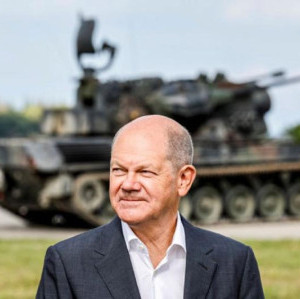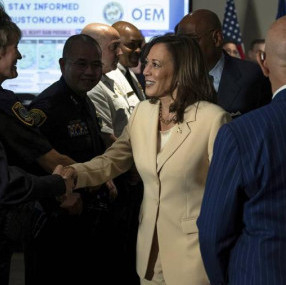Nicaragua's November 7 general elections gave the win to incumbent President and leader of the Sandinista National Liberation Front (FSLN) Daniel Ortega. Although data released by the country's Supreme Electoral Council is exceptionally provisional, there is a huge gap between Ortega, with his 75% of votes, and the other five presidential candidates. Except for some minor things, this picture won't obviously change by the moment the final results are announced. Ortega will complete a quadruple of victories as president of Nicaragua.
These elections' central feature is uttermost confrontation between the current government and the US-backed radical opposition that has been long seeking to oust Ortega. It's more accurate to say that the United States, regardless of its leader, is using Nicaragua's liberal opposition to remove Ortega from power. The Managua-Washington confrontation root cause lies in the fact that since the overthrow of dictator Anastasio Somoza in 1979, Ortega and his FSLN have openly opposed US hegemony in Latin America, proclaiming friendly relations with Russia, Cuba and Venezuela. Washington calls the two latter, along with Nicaragua, "the tyranny three".
It stands to reason that Ortega has learned lessons from his defeat in the 1990 elections to US-backed leader of the National Opposition Union Violeta Barrios de Chamorro. Back then, the United States got the best of Ortega, imposing on him the so-called Central American Peace Plan and essentially forcing him to play away by American rules. Washington vigorously engaged with the opposition, directed and financed it. This became clear not right away but in a while, when we observed similar power shift scenarios in other countries.
This time, Ortega saw through the trick – his FSLN, with its parliamentary majority, passed a number of laws a year before the election that complicated US interference in Nicaragua's electoral process. The first one was a law prohibiting funneling foreign money into political parties, and the pro-American opposition lost its money. The second one was a law to place the country's cyberspace under control and prevent manipulation of public opinion by the United States on the Internet and social networks. Thus, the US lost key leverage among the Nicaraguans. Ortega won the information war.
Besides, the current government, facing constant and multifaceted pressure from the United States, chose not to play "democracy" with those who openly sought to change the country's socio-political pattern to benefit the United States. In spring and summer 2021, the authorities detained seven presidential hopefuls on accusations of getting foreign money, conspiring against the country's sovereignty and independence, and treason. The authorities claim there are good reasons for those arrests. Ortega is well aware that "playing democracy" with the United States by American rules is a no-goer, since the northern neighbor's financial and media capabilities, let alone the military, are completely incompatible with those of Nicaragua.
Moreover, Nicaraguans remember examples of direct and explicit US interference in the affairs of Venezuela, Cuba and Bolivia. By the way, it was due to America's election meddling in Bolivia of 2019 that Nicaragua publicly refused to invite observers from the Organization of American States (OAS) to the current elections, as their leaderships have been openly playing along with the White House in its Latin America policy for years. One of the latest OAS "achievements" is its provocative and unsubstantiated allegation about vote counting "murkiness" during the Bolivian 2019 elections, which led to a coup and overthrow of incumbent president Evo Morales, who won the race though.
Put simply, the Sandinistas chose self-defense without regard to "reprimands" on the part of Uncle Sam and the entire "democratic world". The reaction of the latter was not long in coming. US President Joe Biden expectedly dubbed the Nicaraguan election a "pantomime" – even though the latest US election that made him president raises many questions with the world and at least half of the Americans. Biden qualified Ortega as an "autocrat" and announced an international offensive against the Sandinistas. "The United States, in close coordination with other members of the international community, will use all diplomatic and economic tools at our disposal to support the people of Nicaragua and hold accountable the Ortega-Murillo government and those who facilitate its abuses," the US leader said. Even before the elections, the European Union stated it did not recognize the results of Nicaragua's vote.
Something of the sort was earlier heard from the White House and Europe with regard to Venezuela.
The United States has previously adopted a whole series of financial and economic sanctions against Nicaragua that pretty much complicate the country's life. One must suppose that the Sandinista government, like the whole of Nicaragua, is facing difficult times. It's safe to assume that the United States will actively instigate opposition rallies in Managua and other cities and thus engineer disorders and make it look like a civilian riot, like it was in 2018.
The worst battle is expected on the information front. The Western liberal press is already dramatizing the situation in Nicaragua, aiming to completely discredit both the current election and the Sandinista government. For instance, the Supreme Electoral Council of Nicaragua reports a 65% voter turnout, of whom 75% voted for Ortega. The Western media write exactly the opposite: allegedly, according to "serious" polls (meaning Gallup), Ortega is only supported by 19% of the population, while 81% of people boycotted the vote. Ahead of the elections, the Ortega regime is said to have only "allowed" the Sandinista-loyal opposition to vote, while the radical opposition (for which read pro-American) was left in the basket.
Anyway, the coming days will see a US-instigated aggravation of the crisis around Nicaragua that will probably follow the Venezuelan pattern, although laced with "national flavor". Washington has a single goal of making Ortega quit, while changing Nicaragua's political affiliation and embedding the republic into the mob of US vassals.









